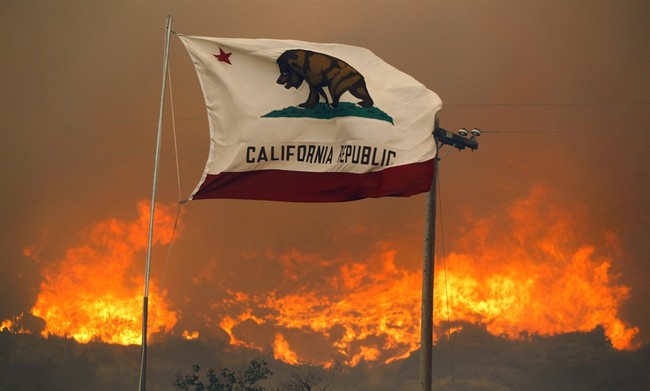
California’s insurance industry has been struggling for more than a year. State Farm and Allstate announced they would continue doing business with existing customers but wouldn’t write any new policies. Farmers Insurance said they would cap the number of new policies they would write per month. Several smaller insurers just left the state entirely.
Now California’s Insurance Commissioner, Ricardo Lara, says he has a plan that will fix the problem.
“With the reforms that we’re proposing, I’m very confident that we’re going to see some real change coming mid-2025,” Lara told ABC10’s Alex Bell, of To the Point. “We’re going to see that California is back open for business. We’re going to see insurers coming back to California.”…
His strategy aims to entice insurance companies to return to writing fully in California once again by giving them several things they’ve wanted for years.
Those include a faster rate approval process. In California, insurance companies are required to get approval from the state before raising rates. Companies say it often takes the department more than a year to approve a rate hike, which in recent years hasn’t allowed them to keep up with inflation and rising risks.
Lara’s Sustainable Insurance Strategy also includes allowing insurers to use forward-looking ‘catastrophe modeling’ when justifying their requested rate hikes, which factor in current and near-future climate models to judge wildfire risk and more accurately price products.
The rate hike approval process has indeed been one of the major complaints. Any hike above single digits gets scrutinized by the state, which can take a long time. Normally that process might work but when you have 9% inflation there’s no way to quickly cover those added costs, which is one major reason so many insurers are pulling back.
But there’s another story out today which suggests insurers aren’t really sold on the plan. State Farm is projecting it will lose up to a third of its current California customers in the net five years. That’s a big deal because State Farm is currently the state’s largest insurer.
If current conditions persist for State Farm General — the part of the company that covers property insurance, including homeowners and business liability — its total policy count in California could decline from 3.1 million at the end of 2023 to just over 2 million by 2028, according to new filings submitted to the California Department of Insurance.
The projection assumes that State Farm General will continue to lose policies at a similar rate to what it does now, reflecting customers who choose to leave or who are canceled due to noncompliance. It does not necessarily mean State Farm plans to conduct more massive nonrenewals — such as the approximately 72,000 policies that the insurer began dropping this summer…
State Farm General is in the midst of an unprecedented request to raise its rates by 30% or more across the board to avoid potential insolvency. The company’s steep policy decline is projected whether or not the rate increase request is granted.
That 30% increase is on top of a 20% increase which was approved earlier this year. If the new rate hike is approved it would take effect at the start of next year.
Here’s my takeaway from all of this. State Farm isn’t planning to cut people off, but expects to lose a huge amount of business as people cancel policies or fail to pay for them. Presumably some of that loss is because of the increased costs of policies. At the same time, State Farm wants another big rate hike which it may get because a) California can’t afford to see them walk away and b) the insurance commissioner’s new plan should make big rate hikes easier.
What that means for customers is much higher rates. And that probably means there will be more people walking away or unable to pay than there are now. In other words, the problem isn’t just keeping the industry afloat, it’s also having policies that normal people can afford. California has been erring toward the latter goal and now it’s trying to correct toward the former. But either way you are going to have problems.
As someone who lives here, I can tell you that the cost of everything has gone up in the past two years. Not just gas, groceries, electricity, natural gas, but car insurance, home insurance, etc. Big rate increases may be what the industry needs to survive but that all eventually falls on customers who are already dealing with increased prices everywhere else. Living in California is not for the faint of heart.







